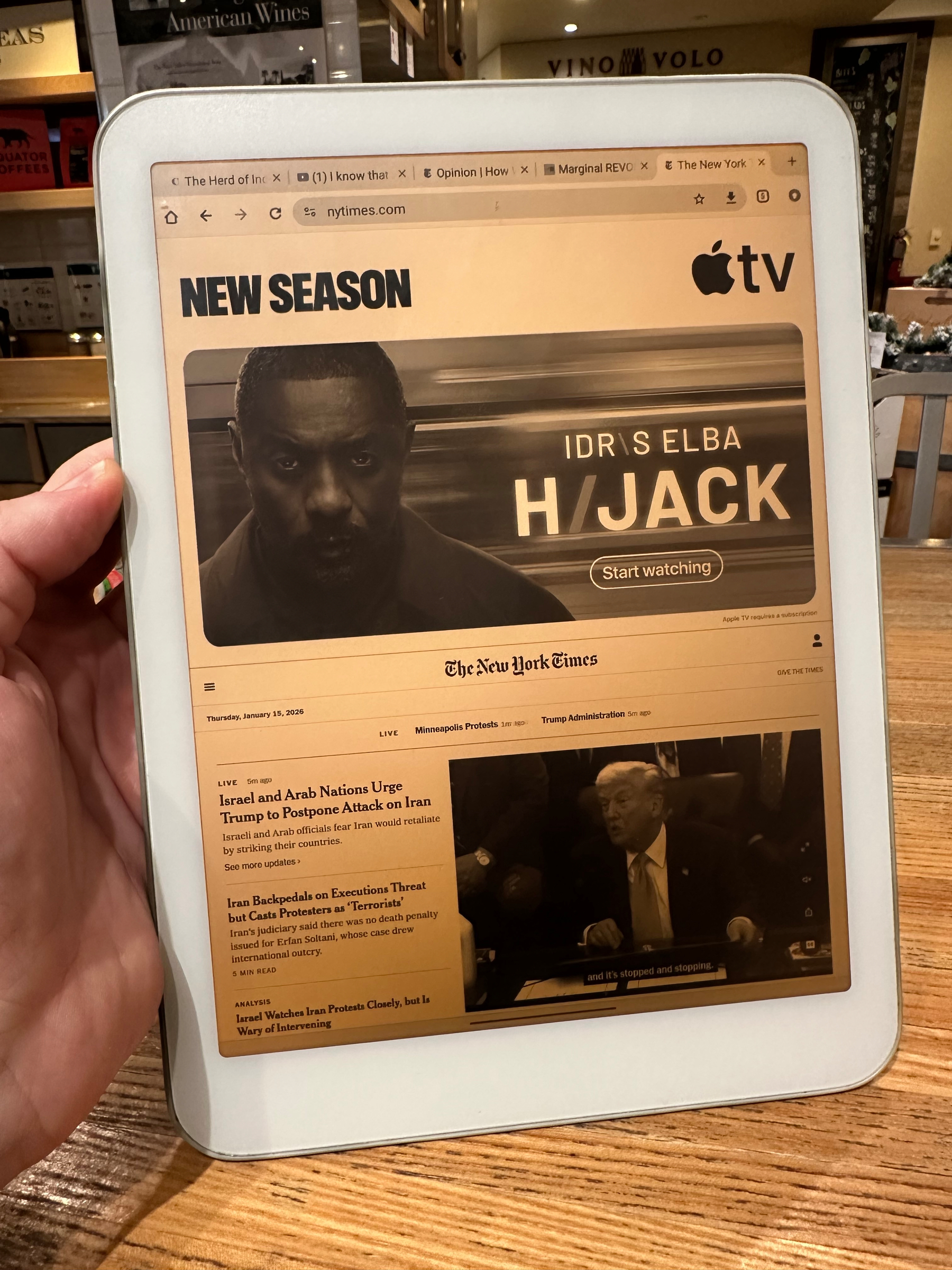January 17, 2026
📚 Finished reading: "Breakneck" by Dan Wang

There is no shortage of praise for Dan Wang on this blog. In fact, I have read, watched and listened to so much of him that I wondered whether I should even read Breakneck. Ultimately, I was so primed by Apple in China and Technofeudalism that I was eager to learn more about the country. And good thing I did, because while I appreciate the ambition of Breakneck and Wang’s quick sketches of several major events in Chinese history — the one-child policy, rise of tech manufacturing, covid-19 pandemic — I am not sure that I at all agree with his central premise.
Wang paints China as a society of engineers and the US as a society of lawyers. One is oriented to action and building, the other to stasis and obstructing. In China, the heavy and unkind hand that forced sterilization of women and locked down millions of people during the pandemic had also literally moved mountains and laid down thousands of miles of high-speed rail. In the US, the only thing that the hand wields is the pen, with consequences all Americans can recognize: nothing gets done, good or bad. If only China paid a bit more attention to the rule of law instead of wielding rule by law; and if only America built more, or rather made its legal environment more hospitable to builders.
But then this model is as simplistic and misleading as the 1970s Population Bomb projections that the world would run out of food. Engineers in the US are doing just fine in building needle skyscrapers in Manhatten and changing the skylines of Nashville, Austin, Las Vegas, and even DC. Isn’t the infrastructure crumbling, though? American Society of Civil Engineers gives it an overall score of C (“mediocre, requires attention”) in its report card. To be cynical for a moment, the report card is a lobbying tool from professional society more than an objective assessment. I am willing to bet that more civil engineers in America work in aviation than rail. But this is about maintenance, not scale: rail gets the second-highest score of B (“good, adequate for now”) while aviation gets the second-lowest, D+ (poor, at risk). Overall rankings — which I would, to be clear, also consider dubious — still place US ahead of China This large of a drop is a reflection of the ruler more than the table. even as America dropped from 1st place in 2018 to 11th in 2025.
Having never even visited China I don’t dare comment whether or by how much Wang’s assessment of his birth country is off. I did notice that the verbal tendencies of the Chinese Communist Party were much like those of corporate America: big initiatives with bombastic names among which are sprinkled some gentle euphemisms. I would also note that there must be at least some kind of law, otherwise what would be the point of special economic zones (special from what)?
Wang does touch upon what I think is the central problem: the financialization of America. It is wise to follow the money, and as powerful as the lawyers here appear to be they are but a proxy for the people who wield pay them. Responsible for the current American condition are not lawyers, it is greed. If the autocrats of China were able to recognize this peril to their own country and avoid it then kudos to them, but then greed can manifest in many ways.
Last year I was quite enthusiastic about Waymo, Google’s self-driving cars that have been on their way to DC for quite a while now with no go-live date in sight. Well just this week I was in San Francisco again and the difference in experience was striking. Last year I had a family member or two with me so it was never a one-person ride. This year I came by myself, and felt lonely sitting in the back seat of a large Jaguar. I couldn’t look at the phone — those dots don’t really help with motion sickness — so I just listened to a podcast while staring through the window.
In contrast, I had excellent conversations with every taxi and Lyft driver on this trip. But I’ll skip recounting those lest I turn into Tom Friedman.


